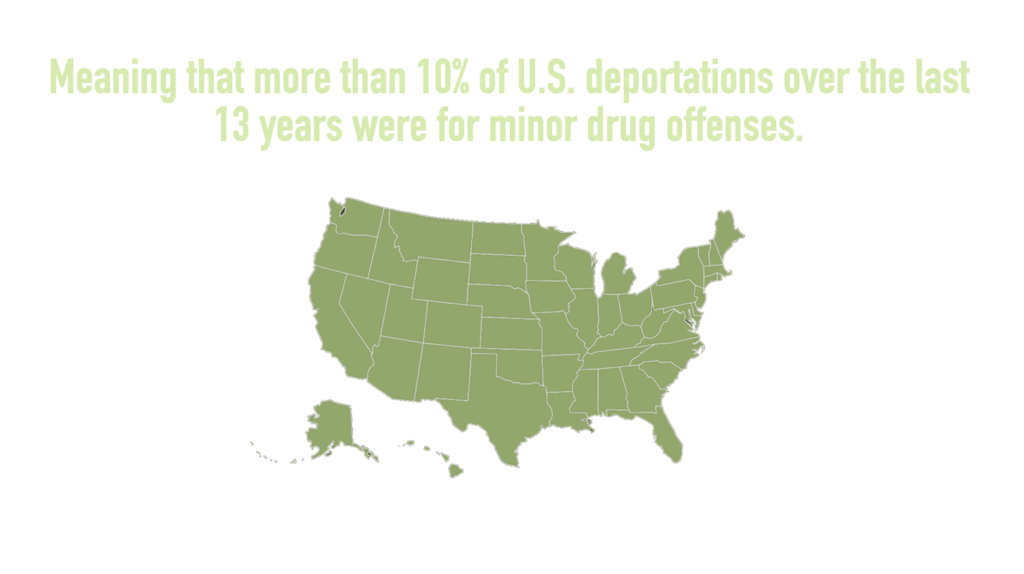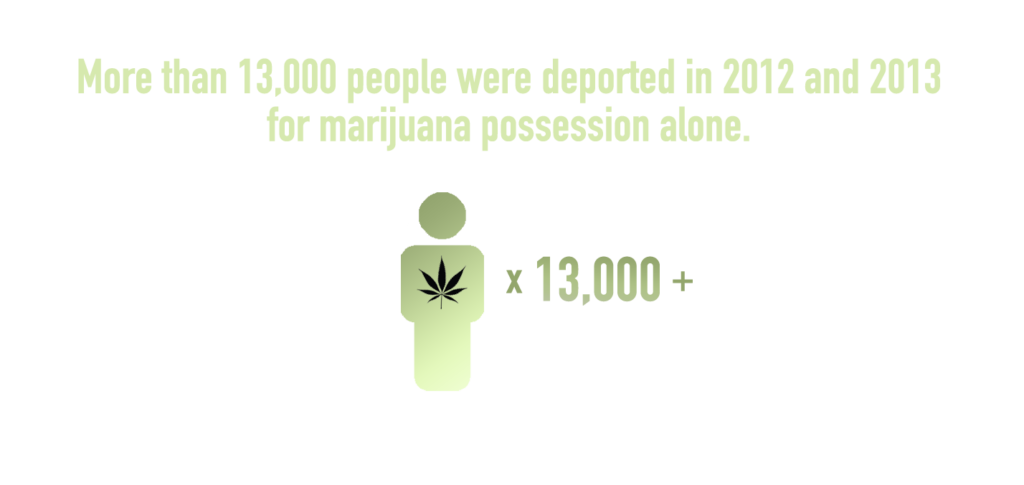How Cannabis Has Influenced U.S. Deportations
There is a stark contrast between how states and the federal government treat cannabis. Marijuana laws are contrasting, complicated and change so frequently that even cannabis experts can’t keep up.
Cannabis businesses know this all too well. The federal government classifies cannabis as a “Schedule 1” substance. In our industry, seemingly simple tasks like bank loans and investing are difficult. But this designation impacts more than business. The federal classification of marijuana also influences larger political issues, such as deportation.
As it turns out, the government can deport immigrants for any involvement in the cannabis industry. Investment, employment and consumption are all legal grounds for deportation. Not only that, but this can get an immigrant banned from the U.S. for life.
How?
Immigration deportation laws vaguely state that “Any alien who is, or at any time after admission has been, a drug abuser or addict is deportable.” However, the government has not yet defined what a “drug abuser” or “addict” is in this context.
It’s also important to note that this is enforced regardless of the individual’s immigration status. Meaning, the U.S. can deport legal immigrants in this country for using cannabis even in states where it is completely legal.
Drug Use & Immigration Myths
There’s a lot of misinformation going around about drug use and immigration, let’s clear a few of them up.
1. The Illegal Drug Use Problem In The U.S. Started When Immigrants Smuggled Cannabis In From Mexico
Popular political rhetoric in the 19th century framed immigration from Mexico as bolstering illegal drug use. The truth is, Mexico had firm anti-cannabis laws long before the U.S. did. As historian Isaac Campos, author of Home Grown: Marijuana and the Origins of Mexico’s War on Drugs told Time magazine, “I’ve actually found evidence that Mexicans were crossing the border into the U.S., buying cannabis in pharmacies, and taking it back to Mexico probably to sell there,” he says. “So the smuggling was going in the other direction at that time because many states in Mexico had already prohibited it.”
2. Deporting People For Drug Offenses Means Removing Drug Traffickers From The U.S.
According to a Drug Policy Alliance fact sheet, a negligible percentage of immigrants are deported from the U.S. for drug trafficking. In 2013, less than 1% of deportations were drug traffickers. In contrast, over 13,000 people were deported for marijuana possession that same year.
3. Americans Believe That Deporting Immigrants Is Vital To Immigration Reform
Immigration has always been a hot topic for politicians. While there is a sharp divide among American citizens when it comes to deportation and immigrants, there is one aspect that the majority seems to agree on. That is, deportation is lower on the priority list than other immigration items. Higher up? Increased border security and assisting illegal immigrants in gaining legal status remain here.
Cannabis Related Deportation In Numbers
Is this all an empty threat, or does the federal government really use cannabis as a deportation tool?
A Drug Policy Alliance (DPA) fact sheet breaks it down in numbers:
- The U.S. deports roughly 40,000 people for minor drug offenses every year.
- Since 2007, more than 250,000 people have been deported from the U.S. for drug offenses

- From 2007 to 2012, 38% of total deportations (more than 100,000 people) were for drug possession.
- In 2013, marijuana possession was the most common drug law violation deportation.

With Cannabis, It Always Comes Back To Federal Marijuana Laws
States have increased marijuana legalization and decriminalization in recent years. As a result of these more relaxed laws, the industry has made huge strides. Yet we repeatedly continue to see evidence of why this is not enough. If it is not legal on a federal level, there will always be setbacks. The deportation of legal immigrants for legal marijuana use is yet another example of this.
No matter how much freedom the cannabis industry is given by the states, the power ultimately rests with the federal government to determine if, and when, the industry is fully legitimized. If resident users are still being sent to prison and legal immigrants deported for it, we are far from where we need to be.





